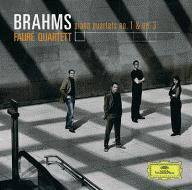Trends in Classical Music
I don’t know if you’ve noticed a trend, but it seems pretty obvious to me – Orchestras are playing more and more film music for their concerts. It’s either this or the more “popular” pieces from the Romantic to Late Romantic eras (composers from Beethoven to Mahler). There are other pieces performed, but the “new” music that seems to create the biggest audience draws are those with a film based themes.
For the last two years the Royal Scottish National Orchestra has built a concert around film music. The Detroit Symphony put film music at the centre piece of their final showcase of their festival. Birmingham filled a programme with John William’s music. Howard Shore’s 2 hour long symphony, based on the music from the Lord of the Ring movies, is touring around the world with 3 different conductors (it’s that popular). John Williams makes more money from the rights to his music as he does on the films (and he makes a lot from the films). The reason for orchestra’s playing film music is obvious, it draws a crowd; film music is music a large segment of society understands and already knows they enjoy.
Caleb Starrenburg thinks most people’s first exposure to orchestral music now is in film, which means film is a power tool in the advancement of orchestral/classical music. It is this first exposure that gives film music a unique opportunity, to advance classical music from where it is to where it will be tomorrow.
Film composers are becoming known for their genre of music: Williams for his fanfare and leitmotifs. Horner for his pounding rhythms, Shore for his sweeping orchestral strings, Zimmer for augmenting orchestral sound with electronics. So, like composers a hundred years ago, film composers are finding their voice and their audience and their music (not just in celluloid form) is surviving the test of time. They are also learning their craft from their predecessors so film music is evolving, growing.
Certainly there will be the Milton Babbitt’s that feel audience appeal has no bearing on the music they write, or those that cringe at the thought of the audience leaving the concert with a hummable melody. While there may be room in the classical world (at least the classical academic world) for these composers, I suggest that popularity in the end will rule. Those composers that will survive (their music played long after their death) will be those whose music is more popular - has greater audience appeal.
Other classical music is getting played. Leonard Slatkin from the NSO commissioned over 50 works during his 12 season. Marin Alsop is known for championing new works and new composers with the Baltimore Symphony Orchestra. So, there is hope for non-film composers reaching a wider market. But I think there is certainly the consideration, when composing a new piece of music, to consider “how filmic is it?” If it isn’t, how likely is the piece to be widely embraced by the public?
Side Note: There is a new opportunity in video game music.

Comments